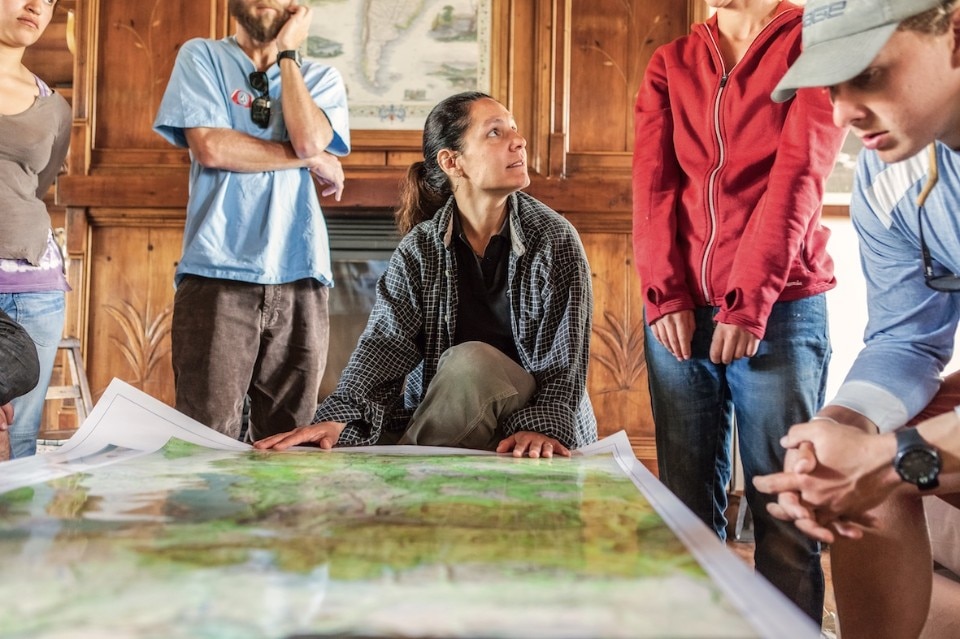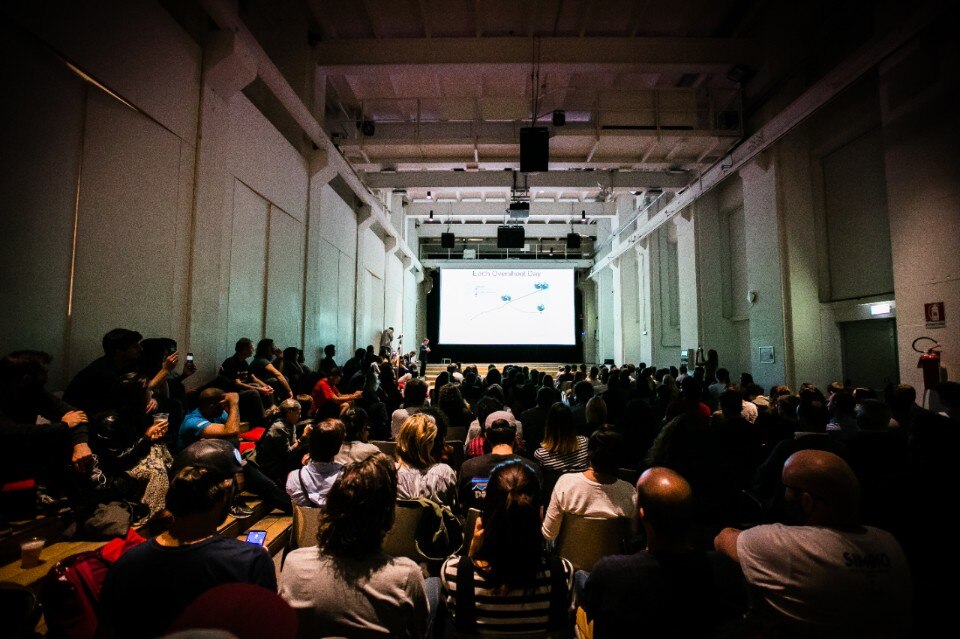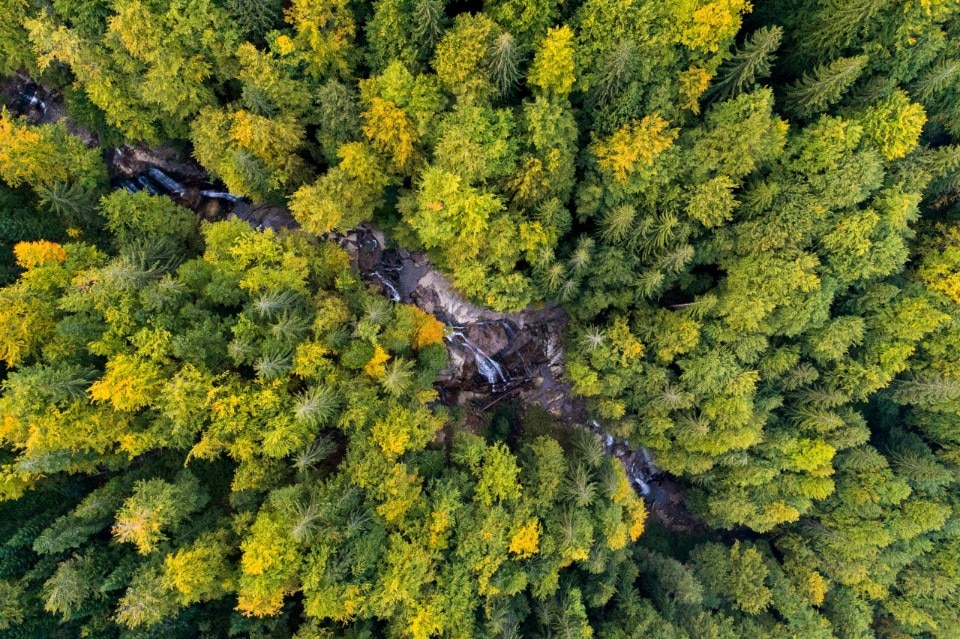Extinction Rebellion, Save Our Rivers and Surfers Against Sewage are just a few of the organizations active on Patagonia Action Works, the new digital platform for environmental and ecological activism which has been recently launched in Europe, after the success in the United States, where it has seen the support of half a million people. “The great challenge is to democratize activism: everybody has to play a part,” says Alex Weller, Patagonia marketing director for Europe. “Action Works is not the solution, but it shows how you can create a set of experiences that can do this”.
Citizens are becoming aware of growing environmental and ecological crisis and are increasingly anxious about these issues and want to participate but don’t know how, tells Weller, which we meet in Milan. Our private discussion before the event for the Italian launch of the platform ranges from how everyone in Europe is somehow directly experiencing the climate emergency - “We are based in Amsterdam, where we had 40 degrees: the previous highest temperature was 38!” - to what’s happening in more extreme regions like the Alps, where – as Weller tells Domus – without artificial snow, the average time an Italian ski resort could stay open is 3 weeks from December until March. “They’re always open, but it’s a false economy, there’s not enough snow to sustain the ski tourism. And to make artificial snow you have to use energy-consuming and water-consuming machines”, is his comment. An in-depth photo reportage about the end of skiing was the cover story of Domus 1035, published in May.

The idea of Action Works was born to directly connect the environmental groups that we support to the wider population, because “environmental activism should be accessible to anybody and a common motivation of society”. In January 2018 the platform was launched in the US and Canada, and now it’s online in Europe, where 160 groups are on the platform. “It’s been online for a week and we’re already getting a great response. And we want to expand more, that’s sure”, says the marketing director, pointing out that environmental activism has been a foundational aspect of the company’s mission since its start in 1973. “The owners are outdoor sports people are able to see at first hand the degradation of wilderness” Weller explains, adding that Patagonia started donating money in the US, but it wasn’t formalized until 15 years ago.
What happened back then?
In 2004 when the company was one of the founding members of an organization called 1% For The Planet. Since then, Patagonia and others have been donating 1% of their annual revenue to grassroots environmental groups around the world. We have around 1100 groups that we support and over one hundred million dollars of donations since the formation of the organization.
And now you go online with a whole digital platform for environmental activism.
This costs money and resources and effort but it’s important work, because it manifests our values as an organization. Yvon Chouinard, the founder of Patagonia, has many wonderful quotes and one of them is “A principle is not a principle until it costs you something”. We had to increase the resources to do it, there’s a dedicated team for the platform: running it means that we have to keep contents and contents come from these small organizations that we work with.

Why Patagonia? You’re doing something that could be expected from an NGO, or directly from a government.
Political leadership globally should be leading the way addressing the deep environmental and ecological crisis that we exist within and focusing all the energy addressing the climate crisis. But they’re not. And so it has to be addressed in other ways. And business has a responsibility to step up in changing times and do more.
Do you think that every brand in the world should take this responsibility?
Yes absolutely.
How?
All of society has to act very quickly. The science tells us that if we’re not carbon neutral by 2025 it’s gonna be very challenging to meet 1.5 degrees warming. As a business, we’ll be fully carbon neutral by 2025. Making things has a great environmental impact, so how can we create solutions that mitigate the impact and create better social policy and social justice in the supply chain. This dimension exists within the product that we make and in the values of the company.
So, you are somehow moving from being an apparel company to providing digital services.
The idea of diversifying the business beyond clothing is not new to Patagonia. Moving into a technology-based service was just about identifying the best way to solve the problem. And the problem is how do we scale the work of the environmental groups we work with, how do we give them access to more skill, visibility and money?
Since this is not something you’re selling, I guess you have to change your approach when evaluating it.
The difference here is that the service is not monetized. We measure the success of the platform based on the amount of revenue in kind that we generate for the groups. Some is actually cash, some is skill volunteering value, and some is media value, through functionality that we call social media amplification.
Patagonia has become more than just an outdoor brand. It’s iconic and mainstream. Do you think that its visibility will bring more people to be interested in ecological and environmental topics?
We hope so. The environmental movement is getting a huge momentum. We’ll see more next week with the Extinction Rebellion action starting October 7, people are increasingly want to make their voices heard on these issues and for us as a company if we have a part to bring more people into the environmental movement that’s an incredibly positive thing. It can’t just be us talking to outdoor sports enthusiasts and surfers and climbers, that’s an elite club. It has to be a mass movement.
What’s the relationship between activism agenda and Patagonia meant as a commercial brand?
What we’ll see is the integration of the activist product, the ability to take action, and our commercial product, living in a more seamless environment. The one thing that we’re really clean is that the flow doesn't work in the opposite direction, so if you’re on Patagonia Action Works you won’t see anything about products.
Opening picture: Save the Blue Heart of Europe by Andrew Burr.




